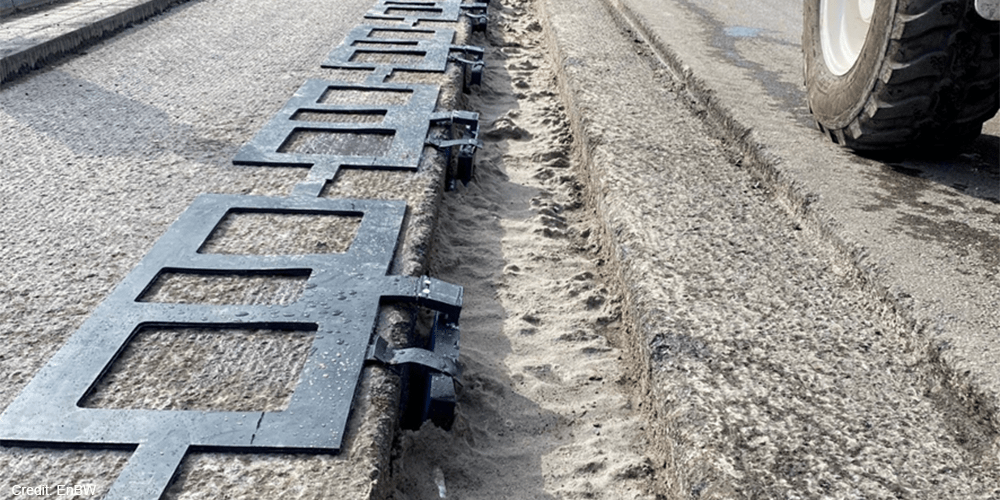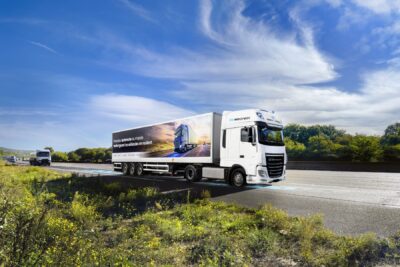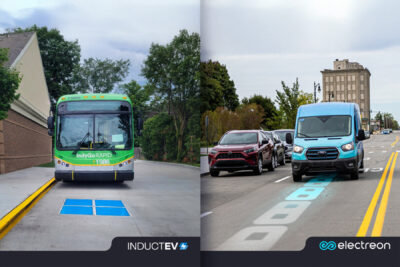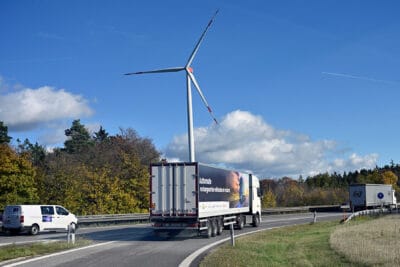Inductive charging project with Electreon begins in North Rhine Westphalia
Along the ERS.T-NRW research project’s inductive charging test track in Aldenhoven in the German state of North Rhine-Westphalia, specially equipped vehicles will test wireless charging under real conditions. Results from previous projects will also be taken into account. The project will run for the next three years and is funded by the state government of North Rhine-Westphalia and the European Union, with a total of around 3.9 million euros.
The project is being carried out by BUW Chairs of Electromobility and Energy Storage Systems, Prof. Benedikt Schmülling, and Theoretical Electrical Engineering, Prof. Markus Clemens, as well as the above-mentioned industry partners Electreon Germany GmbH, which is providing the wireless charging solutions, Denso Automotive Deutschland GmbH, which is providing the automotive technology, systems and components and Strabag, a technology group for construction services.
The project’s researchers are focusing on testing both the components for pure energy transmission, such as coils and power electronics, as well as the appropriate communication system to enable secure and trouble-free data exchange between the vehicle and the charging infrastructure before, during and after each charging process.
“The integration of modern communication technology enables intelligent control of the charging process, protects the vehicle battery and supports flexible and efficient use of the power grids through the exchange of energy data,” says Prof Schmülling. The project aims to ensure that the new technology can be retrofitted not only to new vehicles but also to existing electric vehicles.
“Wireless charging while driving and even when stationary makes electromobility more convenient and therefore more suitable for everyday use – especially in urban areas or for vehicles with high energy requirements,” says Prof Benedikt Schmülling, head of the project at the University of Wuppertal. “Our aim is to develop this technology in such a way that it functions reliably, can be easily integrated into infrastructures and makes a real contribution to the transport transition.”
The project partners note that wireless charging while driving can be particularly advantageous for services such as taxis, public transport and logistics operations, where charging or refuelling time means being out of service for that period. Wireless charging could enable the constant operation of vehicles without downtime. In this way, wireless charging gives even more value to electric vehicles than their fossil-fuelled counterparts, beyond the many other advantages of emission-free transport.
The wireless charging specialist Electreon is also testing wireless charging in another project in Germany, in the state of Bavaria, whereby inductive charging of electric vehicles via embedded coils in the asphalt will soon be tested on the A6 motorway heading towards Nuremberg.
The ERS.T-NRW project partners note that, in addition to technology and test operation, knowledge transfer also plays a major role in the communication of their test results. These are to be incorporated into standardisation committees at the end of the project. The partners see this process as an important step towards a uniform standard for wireless charging worldwide.





0 Comments